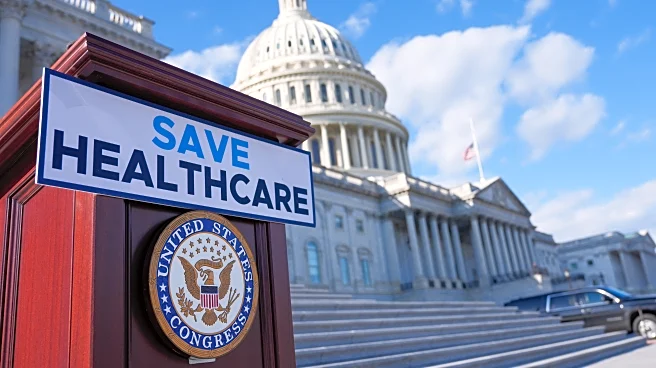What's Happening?
A federal appeals court has ruled that most of President Trump's tariffs, imposed under emergency powers, are illegal. The court found that the tariffs, which were applied globally, exceeded the authority granted by the International Emergency Economic Powers Act (IEEPA). This decision upholds a previous ruling from the Court of International Trade. The tariffs will remain in place until mid-October, pending a potential appeal to the U.S. Supreme Court. President Trump has criticized the ruling, calling it partisan and detrimental to the country.
Why It's Important?
The ruling represents a significant setback for President Trump's trade policy, which has been a central part of his administration's agenda. The decision could have immediate effects on the U.S. economy, introducing uncertainty for businesses and potentially affecting global markets. If the Supreme Court upholds the ruling, the U.S. may need to refund billions collected from import taxes, impacting federal revenues. The decision also raises questions about existing and future trade deals with major economies like Japan and South Korea.
What's Next?
The case is likely to proceed to the U.S. Supreme Court, where a conservative majority could influence the outcome. If the Supreme Court sides with President Trump, it could set a precedent for broader use of the IEEPA. Conversely, if the ruling is upheld, it could destabilize financial markets and disrupt international trade agreements. The decision's impact on President Trump's political standing and reputation as a dealmaker will also be closely watched.









